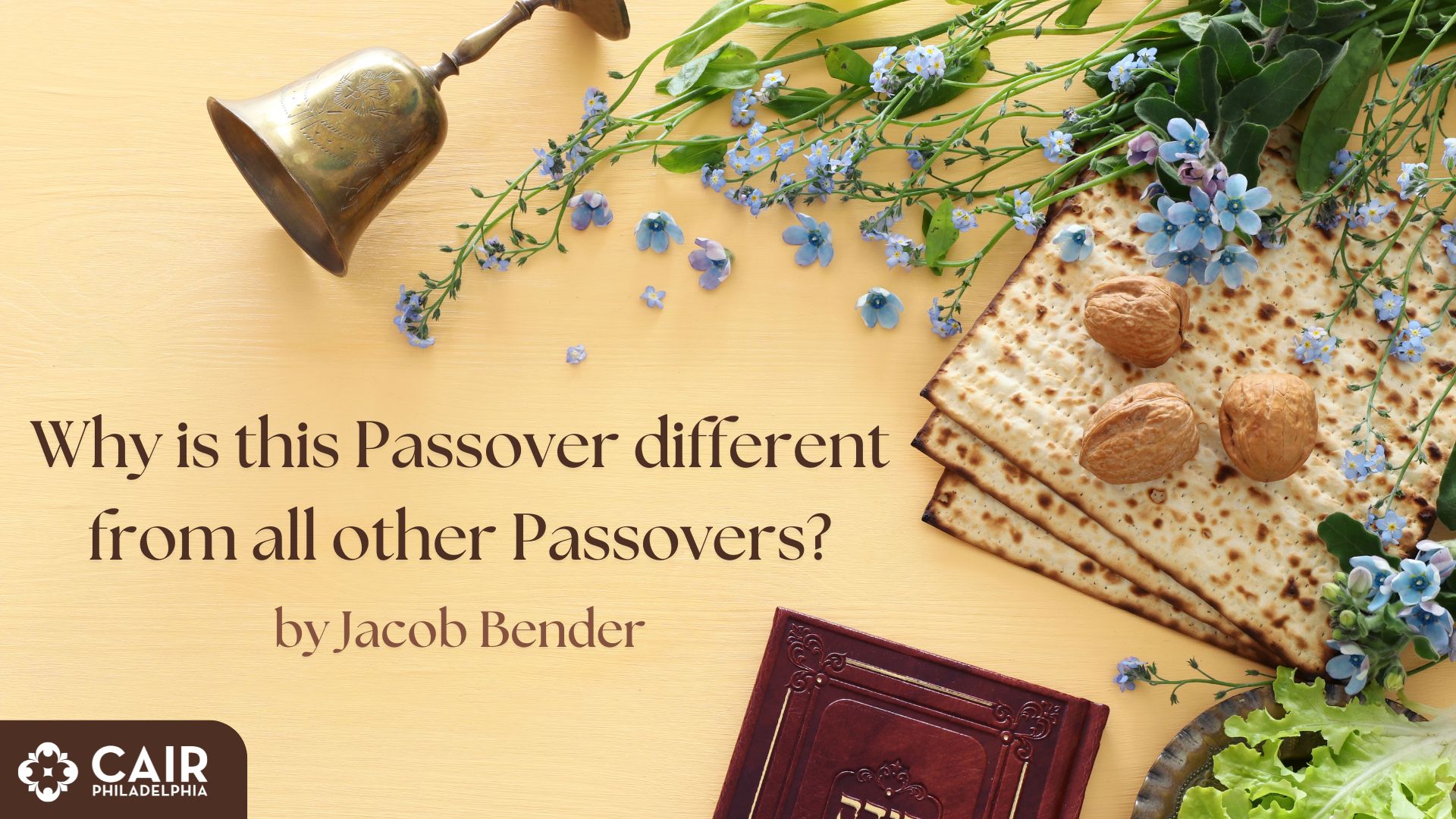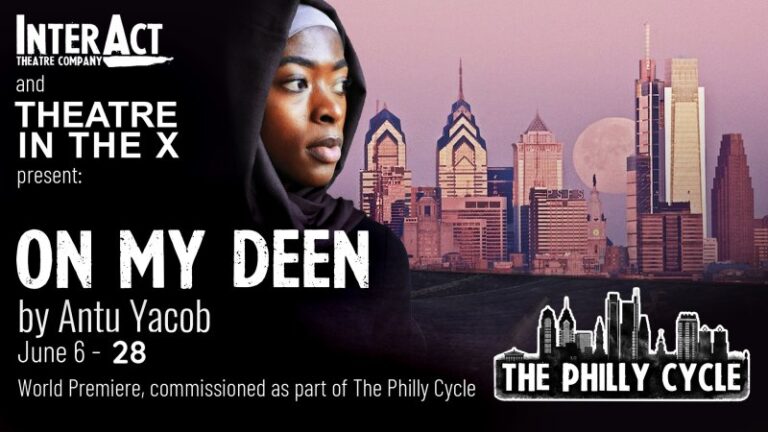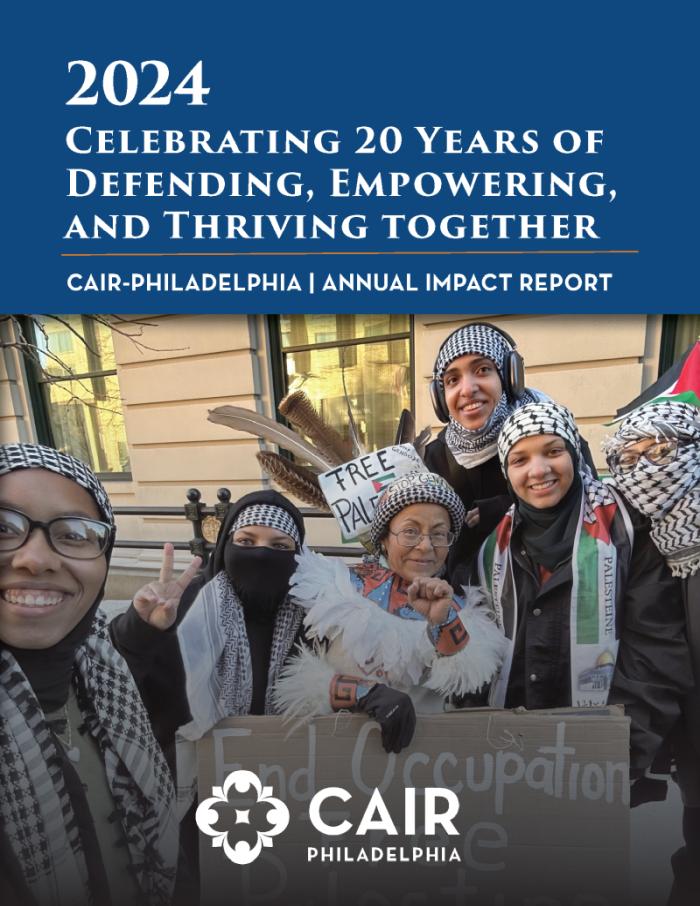By Jacob Bender, CAIR-Philadelphia Creative Director
Why is this Passover different from all other Passovers? Because on this Passover, we mourn with sadness and broken hearts the tens of thousands of our fellow human beings murdered in Palestine and Israel, and we pray that next year will be one of peace.
For over 2,500 years, the Jewish People have celebrated the holiday of Passover, also known as the Festival of Freedom. Lasting for eight days every Spring, Passover commemorates the time when God sent Prophet Moses to free the Hebrew slaves from their bondage in Ancient Egypt.
Passover is the only Jewish holiday that is celebrated in Jewish homes, not in the synagogues. The highpoint of the Passover festival is the seder, a family meal during which several symbolic foods are eaten, including matza, unleavened bread that recalls the flight from Egypt; kharoset, a mixture of dates and other fruit that symbolizes the sweetness of freedom; and bitter herbs to recall the oppression of slavery. Finally, during the seder, a book called the Haggadah is read aloud by the participants that includes historic narration, poetry, songs and prayers of thankfulness to God.
There is no one Haggadah text. Recent Haggadah’s include a Climate Crisis Haggadah, a Jewish-Muslim Haggadah, a Feminist Haggadah, a Vegan Haggadah, a Yiddish Language Haggadah, and an Anti-Nuclear Haggadah. Throughout Jewish history, the story of Passover has become a timeless metaphor of the universal thirst for human freedom. This was never more evident than for the Africans enslaved in the American South before the Civil War, when the biblical story of Moses gave hope to the millions oppressed in the cotton fields.
Although many progressive American Jews have for decades opposed the Israeli occupation of Gaza, the West Bank, East Jerusalem and the Golan, the sheer numerical horror of Israel’s most recent bombing campaign targeting Gaza will be long remembered. We now realize that any progress towards an Israeli-Palestinian peace, either Two-State, One-State, or No-State, depends first of all on the Jewish acceptance of the historical truth of the Nakbah, the ethnic cleaning of Palestine and the destruction of over 400 Arab villages between 1947 and 1950.
Martin Buber, the great German-Jewish philosopher, was one of the first Jews in the early state of Israel to recognize the right of return of the Palestinian People to their ancestral homeland. And it was Prof. Edward Said who wrote that the tragedy of the Palestinians is that they are “the victim of the victims.”
Today, in dozens of university campuses across North America, hundreds of pro-Palestinian students, including many Jews, are being threatened with suspensions, and in some cases with expulsions for supporting the Palestinian People and their struggle for justice. This is nothing else than the return of 1950s McCarthyism, with a new blacklist targeting those who speak truth to power.
So, on this Passover, let us say, “Once we were slaves in the land of Egypt. Let no one be a slave again!”





